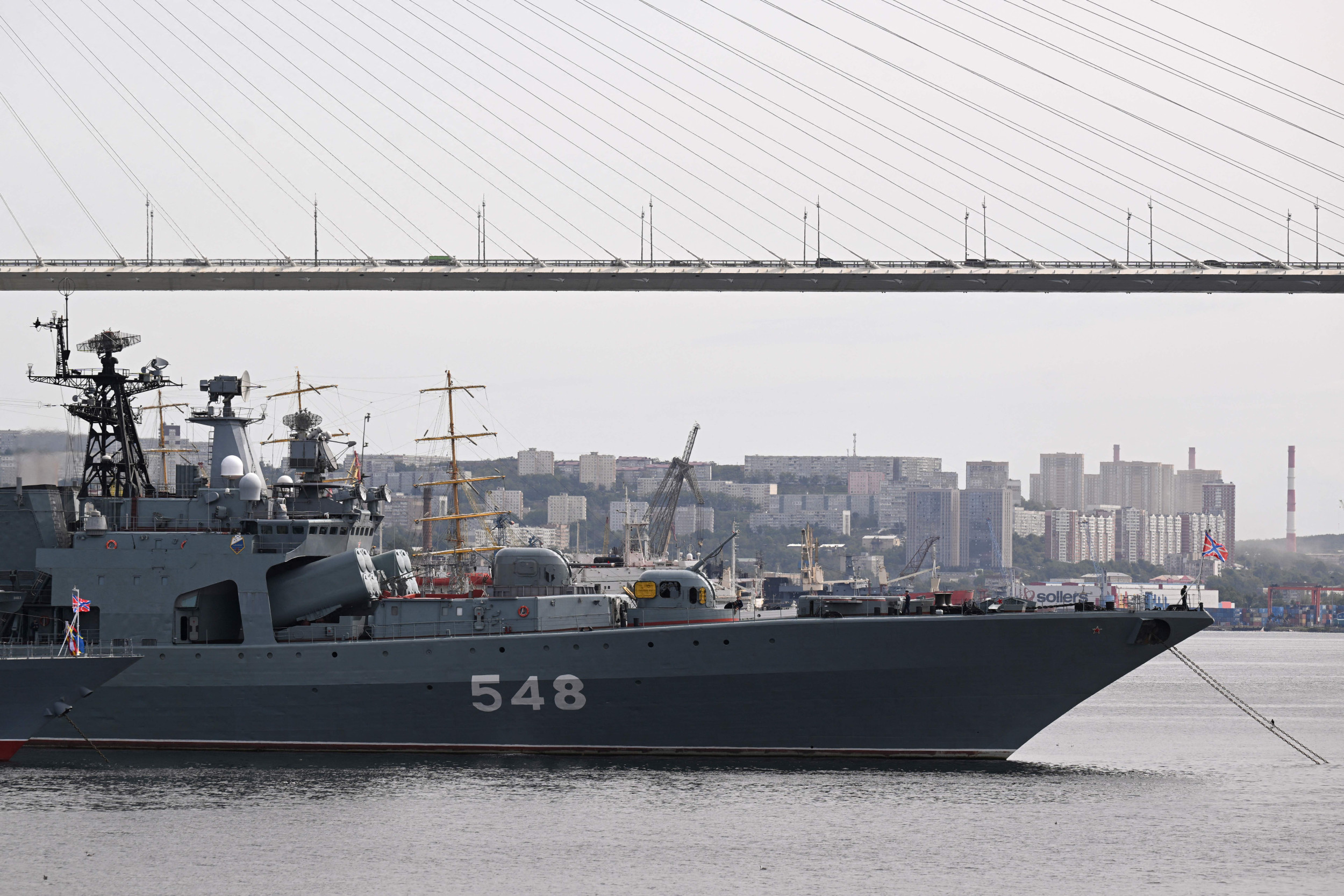It is not yet clear how the conflict between the leadership of the Russian Defense Ministry on the one hand and the leader of the Russian private military corporation, Wagner, is going to end. Wagner leader Yevgeny Prigozhin's crossing the line of criticizing Moscow's decision to go to war with Ukraine has resulted in Russian President Vladimir Putin denouncing him. The very fact that this rivalry between Prigozhin and the Russian Defense Ministry leadership was allowed to occur and get worse for months, though, is Putin's own fault. Instead of putting a stop to it, Putin may have thought that he could both control it and benefit from it. If so, this was a mistake.
It should not come as a surprise, though, that Putin tried to do this, for this has been standard procedure for him. In his foreign policy, Putin has frequently tried to take advantage of rivalries between opposing parties by supporting them both to some extent instead of siding completely with one against the other or not getting involved at all. Thus, Putin has cultivated good relations with several sets of rivals: Israel and Iran, Saudi Arabia and Iran, Turkey and Syria, Armenia and Azerbaijan, China, and India, along with others. None of the opposing sides in any of these pairs is happy that Putin supports its rival. But the choice they face is to stop cooperating with Russia and risk Moscow helping it all the more or continue or even increase cooperating with Russia in order to give Moscow an incentive not to side more with its rival.
The same logic has informed Putin's approach to Russian domestic politics. Putin has long feared being overthrown by his own people in a democratic "color revolution." To prevent this, he has modernized Russia's armed forces as well as beefed up its internal security services. But like every dictator, he knows that security services powerful enough to suppress the opposition are also powerful enough to overthrow him. One way to prevent this is to encourage rivalries among the different security services, making it impossible for them to unify against him.

Putin, of course, did not deliberately create Wagner to rival the regular Russian military and other security forces. Wagner's usefulness as a private military corporation is that it could undertake missions abroad (especially in the Middle East and Africa) that Moscow could deny (however implausibly). But Prigozhin greatly increased Wagner's usefulness to Putin through recruiting Russian prisoners to fight against Ukraine in a war that the Russian military has not been able to win.
Putin's allowing Prigozhin to repeatedly criticize how Russian military leaders were prosecuting the war ineffectively indicates that Putin found this to be useful, perhaps as a means of spurring the regular Russian military to fight harder against the Ukrainians "like Wagner" was purportedly doing. Putin may have also relished being in a position where his subordinates were competing for his favor.
The problem, of course, with attempting to take advantage of rivalries between other parties is that those other parties want to end the game through weakening each other. Prigozhin's repeated, and often crude, denunciations of the Russian Defense Ministry could only be seen by the latter as an attempt to undermine their standing with Putin, and perhaps to ultimately replace them. No wonder, then, that the Russian Defense Ministry held back on resupplying weapons to Wagner (especially at a time when it was trying to ensure that its own forces were resupplied). It is not clear that Prigozhin's recent threats to the Russian military leadership was really a coup attempt, but the Russian Defense Ministry had every incentive to portray it as such to undermine Prigozhin's standing with Putin. And with the help of Prigozhin's criticism of the war effort, they have finally succeeded in doing so.
It would not be surprising if the present crisis ends with the arrest or even death of Prigozhin and the subordination of Wagner to the Russian Defense Ministry. But this may not be good for Putin. The problem with trying to exploit but somehow control rivalries indefinitely is that sometimes conflict between the rivals flares up and one defeats the other. When this happens, the exploiter may no longer have a rivalry to exploit and may be less able to keep the winning party in check.
Something like this occurred under Gorbachev. He maintained power by playing conservative communist hardliners and liberal reformers off against each other. But after the former tried and failed to end this game during their failed August 1991 coup attempt, the liberal reformers led by Yeltsin were able to seize control over the Soviet government from a Gorbachev who could no longer play the weakened conservatives off against them.
Putin risks something similar now. If and when the Russian Defense Ministry succeeds in getting rid of Prigozhin and subordinating Wagner forces, Putin may be in a less strong position to assert his authority over them. Indeed, it would not be surprising if there were those in the Russian military who decided that the best way to end Russia's unwinnable war with Ukraine is to get rid of the leader who both sent them and kept them there to fight it.
Is this really a possibility? I don't know. But neither does Putin.
Mark N. Katz is a professor of government and politics at the George Mason University Schar School of Policy and Government, and a nonresident senior fellow at the Atlantic Council.
The views expressed in this article are the writer's own.
Uncommon Knowledge
Newsweek is committed to challenging conventional wisdom and finding connections in the search for common ground.
Newsweek is committed to challenging conventional wisdom and finding connections in the search for common ground.





